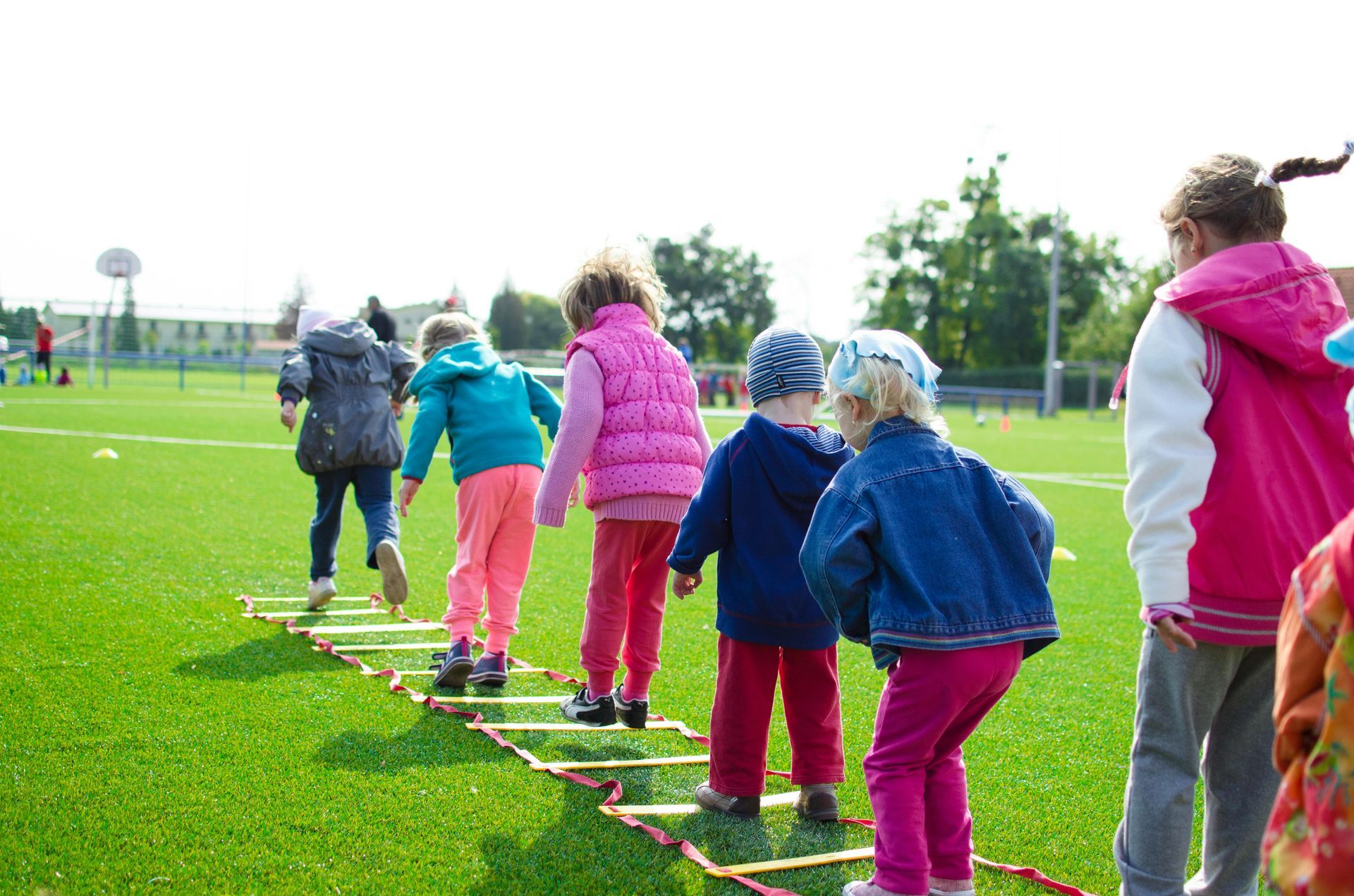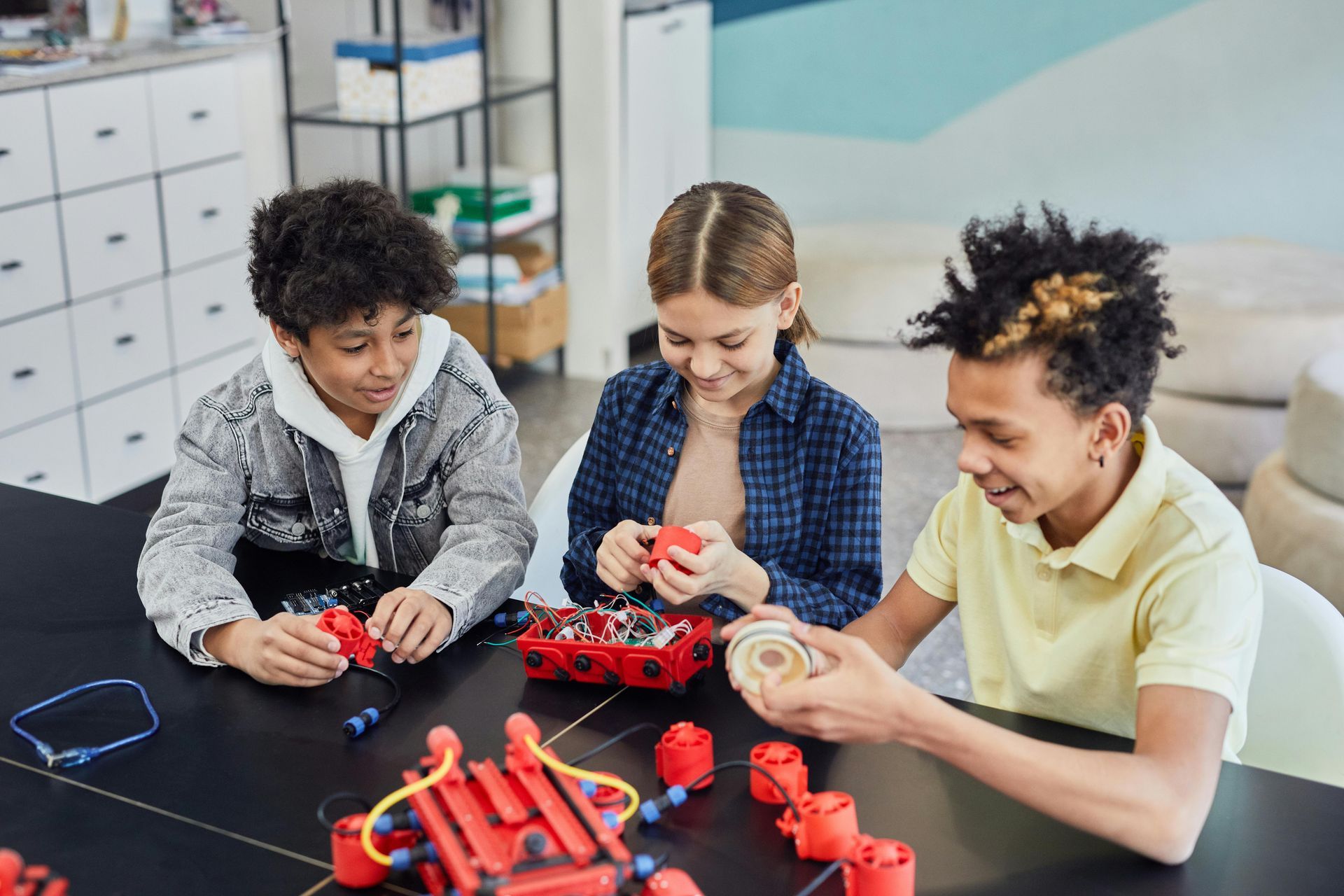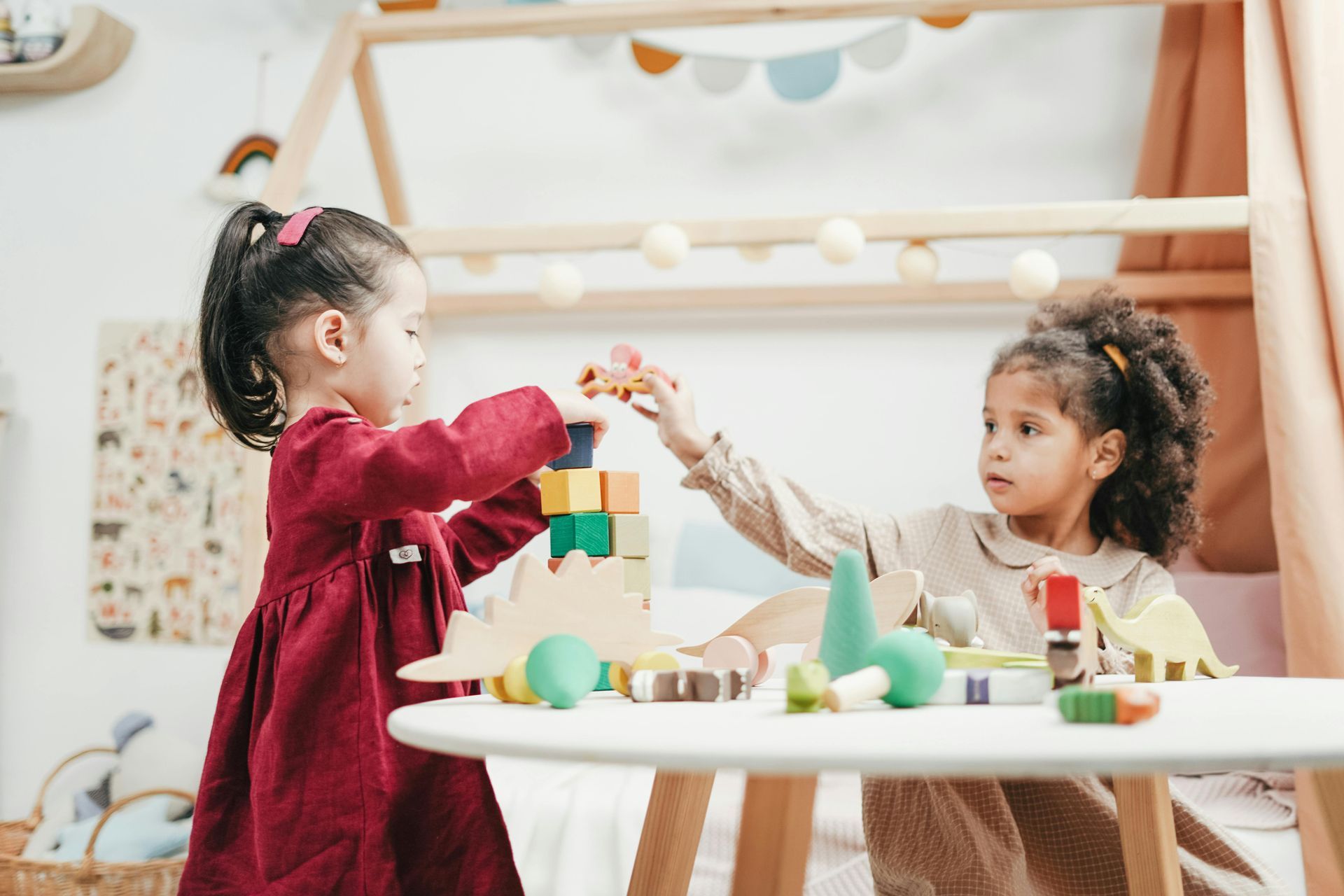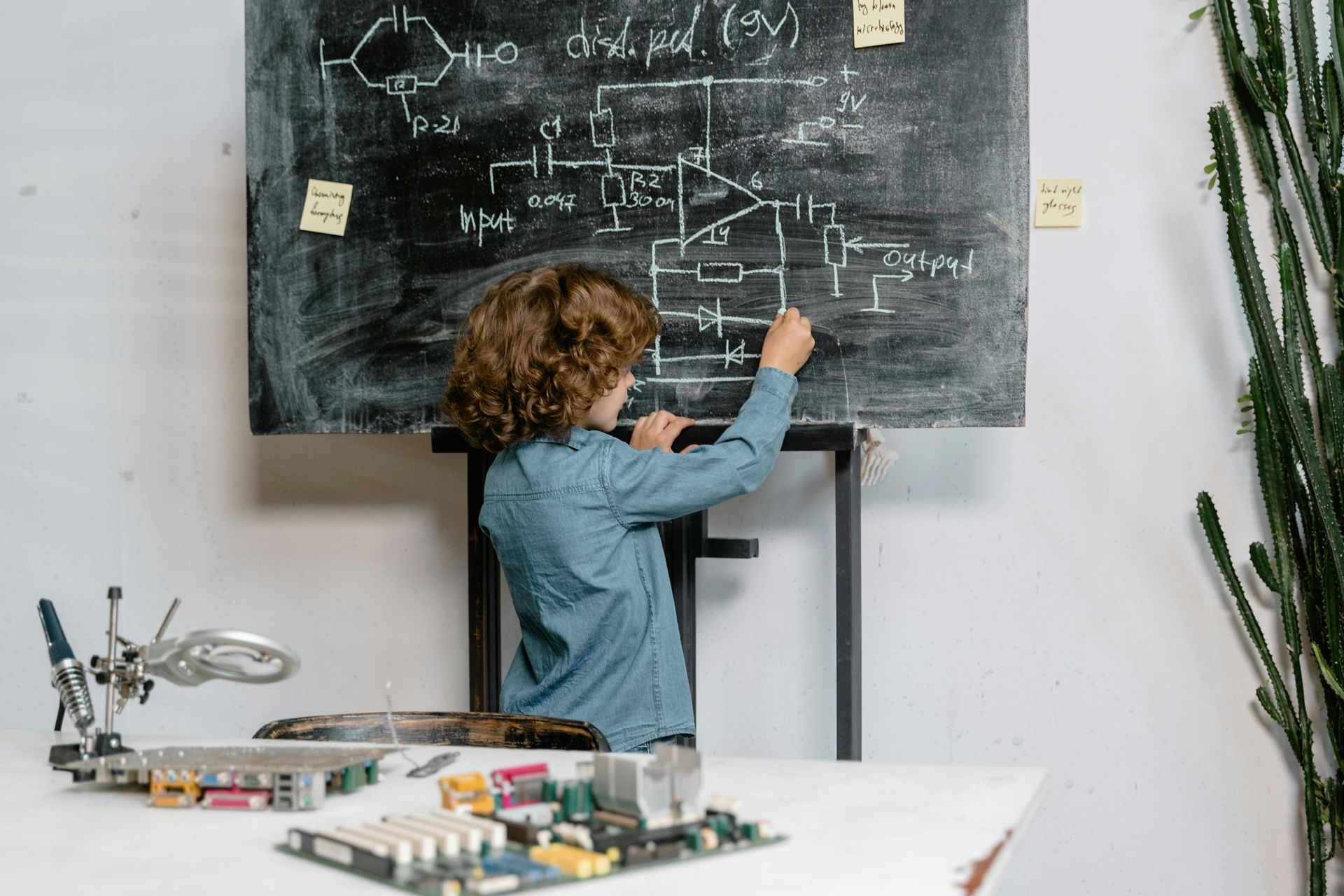The Power of Play in Early Childhood Development at Mt. Sinai CDC

The Role of Play in Child Development
Play is often seen as just a fun and enjoyable activity for children, but in reality, it is an essential component of early childhood development. At Mt. Sinai Children’s Development Center (CDC), we understand the profound impact that play has on a child’s cognitive, emotional, and social growth. Through carefully designed play activities, we foster a learning environment where children can explore, create, and develop important life skills.
In this blog post, we will explore the many ways play contributes to early childhood development and how we incorporate play into our daily routines to support the growth of every child. We’ll examine how different types of play—such as physical, imaginative, and social play—benefit children’s overall development, and how Mt. Sinai CDC utilizes these play experiences to help children thrive.
Why Play Matters: The Science Behind Play and Development
Research has consistently shown that play is not just about fun—it is critical for a child’s growth. Play helps children develop essential cognitive skills, motor abilities, and emotional regulation. Furthermore, it promotes creativity, problem-solving, and social skills. Play encourages children to think critically, engage with their environment, and interact with others, all of which are foundational elements for lifelong learning.
During the early years of life, the brain is developing rapidly, and it requires a variety of stimulating experiences to form healthy neural connections. Play provides these experiences, allowing children to practice skills and engage with the world around them in a safe, supportive environment.
1. Cognitive Development Through Play
Cognitive development refers to how children think, learn, and understand the world around them. Play is a powerful tool for fostering cognitive growth in young children because it encourages them to explore, experiment, and solve problems. Whether it’s stacking blocks, completing puzzles, or pretending to cook in a play kitchen, every activity offers an opportunity for children to build their cognitive skills.
- Problem Solving: Through play, children learn to think critically and solve problems. For instance, building a tower out of blocks requires children to think about balance, spatial relationships, and cause and effect. By experimenting with different materials and approaches, children develop problem-solving strategies that they can apply in other areas of their lives.
- Creativity: Play encourages imagination and creativity. Whether it’s pretending to be a doctor or an astronaut, imaginative play helps children explore different roles and ideas, which enhances their creativity and thinking skills. At Mt. Sinai CDC, we provide a variety of open-ended play materials—such as art supplies, costumes, and building toys—that encourage children to think outside the box.
- Language Development: During play, children often engage in conversations, ask questions, and explain their actions. These interactions help develop vocabulary, communication skills, and the ability to express ideas. By engaging in cooperative play with peers and adults, children strengthen their language skills and expand their understanding of the world.
2. Physical Development Through Play
Physical play is vital for the development of motor skills, strength, and coordination. Whether children are running, climbing, dancing, or playing with toys that require fine motor skills, physical play helps children build the muscles and motor abilities necessary for other activities, like writing or drawing.
- Gross Motor Skills: Gross motor skills involve large muscle groups, which are used for activities such as running, jumping, and throwing. At Mt. Sinai CDC, we encourage physical play through activities like outdoor playtime, obstacle courses, and group games. These activities not only help children build strength and coordination but also allow them to expend energy in a productive and healthy way.
- Fine Motor Skills: Fine motor skills involve smaller muscle movements, such as using fingers to pick up small objects or holding a pencil to draw. Through activities like art projects, puzzles, and building with small blocks, children develop the hand-eye coordination and dexterity necessary for writing, eating, and other daily tasks.
Physical play is essential for children’s growth, and it’s important to provide ample opportunities for both indoor and outdoor physical activities to support the development of these vital skills.
3. Social and Emotional Development Through Play
Play also plays a significant role in developing social and emotional skills. When children play with others, they learn how to cooperate, communicate, share, and navigate social relationships. These early experiences help children develop emotional regulation, empathy, and self-control, which are crucial for forming positive relationships throughout life.
- Cooperation and Teamwork: Through group play, children learn how to share resources, take turns, and work together toward a common goal. Activities like group games, building projects, or playing pretend encourage children to collaborate and respect each other’s ideas.
- Conflict Resolution: Conflict is an inevitable part of play, and it’s during these moments that children learn how to resolve disagreements. Whether it’s deciding who gets the toy first or how to take turns, play provides children with opportunities to practice negotiation, problem-solving, and conflict resolution skills.
- Self-Regulation: During play, children learn how to manage their emotions and behaviors. They experience excitement, frustration, joy, and disappointment, and through these experiences, they learn how to regulate their emotions. Teachers at Mt. Sinai CDC support emotional development by guiding children through social interactions and providing strategies for emotional regulation.
These social and emotional skills, learned through play, help children develop confidence, empathy, and the ability to manage their feelings in various social settings.
4. Imaginative Play: Fostering Creativity and Problem Solving
Imaginative or pretend play is one of the most beneficial types of play for young children. Through imaginative play, children can explore different scenarios, experiment with new ideas, and engage with the world in creative ways. Whether it’s pretending to be a doctor, a teacher, or an animal, imaginative play enhances problem-solving skills and encourages children to think creatively.
Imaginative play also helps children process their emotions and understand the world around them. For example, playing house allows children to explore family dynamics, while pretending to be a doctor can help alleviate any fears about visiting the doctor’s office. This type of play encourages emotional expression, builds confidence, and fosters empathy.
At Mt. Sinai CDC, we provide various props and materials for imaginative play, such as costumes, puppets, and pretend kitchen sets, which help children explore different roles and narratives. These activities nurture creativity and imagination, allowing children to expand their cognitive and emotional development in a fun and engaging way.
5. Play as a Foundation for Lifelong Learning
Play isn’t just important for early childhood development—it lays the foundation for lifelong learning. The skills children develop through play, such as problem-solving, creativity, and social interaction, will serve them throughout their educational journey and beyond. At Mt. Sinai CDC, we believe that fostering a love for play and learning early on encourages children to be curious, resilient, and engaged in their educational pursuits.
By emphasizing the value of play in early childhood, we help children develop a positive attitude toward learning. They come to view learning as something enjoyable, engaging, and full of possibilities. This mindset is crucial for success in school and in life.
By offering vital community resources for families and maintaining a safe and nurturing environment, Mt. Sinai CDC ensures that children and their caregivers feel supported every step of the way.
Embracing the Power of Play at Mt. Sinai CDC
Play is not just a fun activity—it is a vital component of early childhood development. Through play, children learn cognitive, physical, social, and emotional skills that will serve as the foundation for their future success. At Mt. Sinai CDC, we recognize the transformative power of play and create an environment where children can explore, learn, and grow through play-based activities.
Whether it’s through physical play, imaginative games, or cooperative activities, we provide a variety of opportunities for children to engage with the world around them in meaningful ways. We are committed to fostering a love of learning and play in every child, helping them develop the skills they need to thrive in the classroom and beyond.















